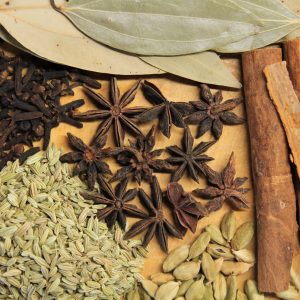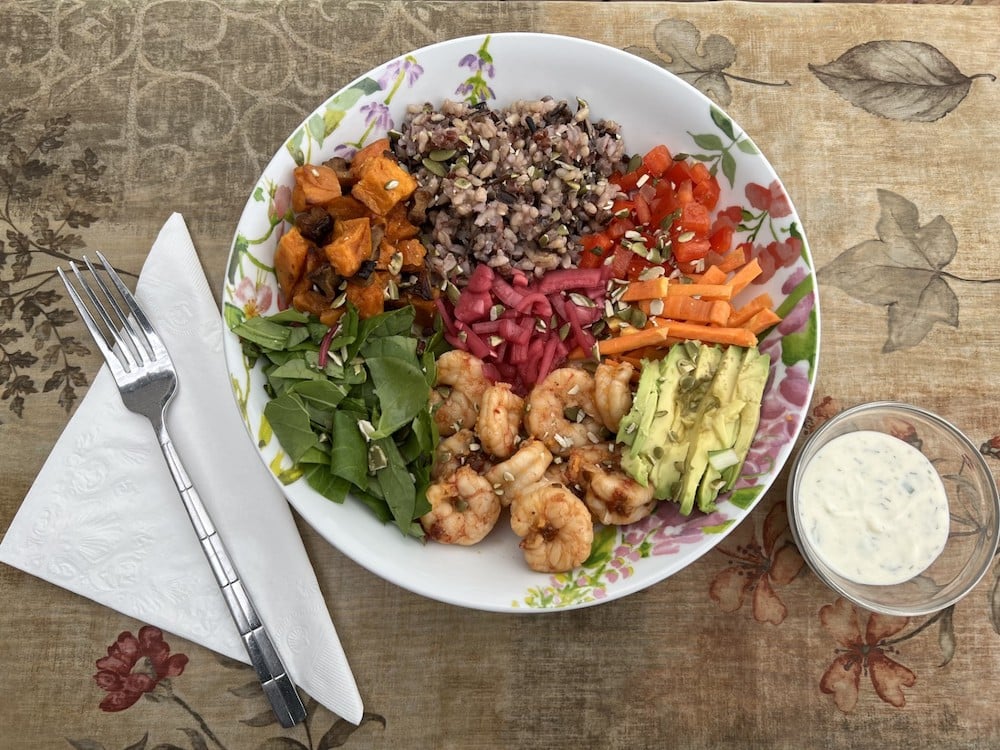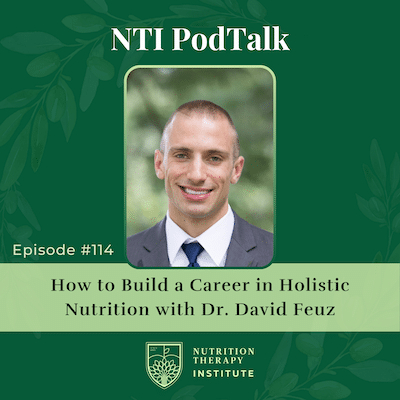
Share this post!
Tired of spending big bucks at your local coffee shop? Try this homemade masala chai tea recipe that won’t fray your purse strings; it’s packed full of healing herbs to keep you healthy as the seasons change! Check out the recipe and its healing properties below to become your own barista!
You Are What You Eat
 Cinnamon
Cinnamon
Studies show cinnamon lowers blood sugar levels by reducing insulin resistance. Also, cinnamon has been shown to reduce cholesterol levels; its high concentration of antioxidants helps protect the body from free radicals, and it reduces inflammation.
Fennel Seed
Fennel is highly beneficial toward relieving digestive problems such as indigestion, bloating, flatulence, constipation, colic, intestinal gas, heartburn, and even irritable bowels. Fennel seed stimulates digestion, and has carminative effects that soothe the digestive tract and prevent the formation of gas.
Fresh Ginger
Ginger is a warming remedy ideal for boosting the circulation, lowering high blood pressure and keeping the blood thin in higher doses. Ginger’s powerful anti-inflammatory properties make it great for reducing joint problems; it also contains anti-viral properties – making it an effective cold and flu remedy.
Black Peppercorns
Black peppercorns are a rich source of manganese, iron, potassium, vitamin C, vitamin K, and dietary fiber. It is also a very good anti-inflammatory agent because it increases the hydrochloric acid secretion in the stomach, thereby facilitating digestion.
Whole Cloves
Cloves improve digestion by stimulating the secretion of digestive enzymes. Cloves are also good for reducing flatulence, gastric irritability, dyspepsia and nausea. Whole cloves contain high amounts of antioxidants, which are ideal for protecting the organs from the effects of free radicals, especially the liver.
Coriander Seeds
Coriander is a wonderful source of dietary fiber, manganese, iron and magnesium. Coriander leaves are also rich in Vitamin C, Vitamin K and protein. The disinfectant, detoxifying, antiseptic, antifungal and antioxidant properties of coriander are also great for clearing up skin disorders such as eczema, dryness and fungal infections.
Star Anise
Star anise is rich in shikimic acid, which is a plant-based material used to produce anti-viral medication. It also helps soothe digestive ailments, such as bloating, abdominal cramps, gas, indigestion and constipation – not to mention its ability to activate metabolic enzymes.
Give it a Chai
Now that you are an herb expert, check out the directions below to get started!
Ingredients
- 8 cups water
- 8 peppercorns
- 4 star anise
- 12 cloves (whole)
- 1/4 tsp nutmeg
- 1 tsp cardamom
- 1 tsp ginger
- 4 cinnamon stick
- 4 T honey
- 4 tsp vanilla extract
- 2 cups nut milk
Homemade Chai Nutritional Therapy
- Crush and roughly chop the star anise, cloves, and cardamom.
- In a medium saucepan, combine the star anise, cloves, cardamom, fennel seed, cloves, cinnamon stick, ginger root, peppercorns, and water. Boil for 5 minutes. Remove from the heat and steep for 10 minutes.
- Strain mixture, discard spices and return the tea to the saucepan. Stir in the nut milk and honey (optional).
Enjoy!
Author: Rebecca Lederman is an admissions counselor for NTI who loves living a sustainable, compassionate and healthy lifestyle and hopes to inspire the same passion in others.
More Recipes Using Warming Spices:
Warm Spiced Butternut Squash Salad with Apples and Raw Pumpkin Seeds
Dairy-free Turmeric Pumpkin Pie Panna Cotta
Mmmmaple Cinnamon Chia Seed Pudding
Gain the knowledge and skills to prepare foods for optimal nutrient density in the Natural Food Chef program!
The 15-week program only runs twice a year: Spring and Fall so don’t miss out! Contact the admissions team at ad********@*******ol.com or sign up for a cooking demo to learn more.
Nutrition Therapy Institute (NTI) creates optimal health through nutrition education.
Images: Image by Tea Creative│Soo Chung is free for use by Unsplash; Image by Timothy Newman is free for use by Unsplash
Share this post!


















